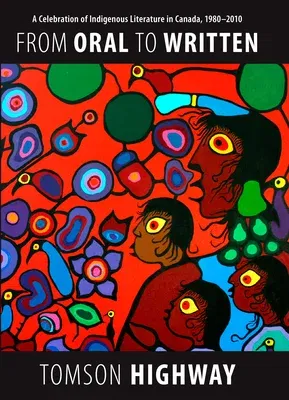Aboriginal Canadians tell their own stories, about their own people, in
their own voice, from their own perspective.
If as recently as forty years ago there was no recognizable body of work
by Canadian writers, as recently as thirty years ago there was no Native
literature in this country. Perhaps a few books had made a dent on the
national consciousness: The Unjust Society by Harold Cardinal,
Halfbreed by Maria Campbell, and the poetry of Pauline Johnson and
even Louis Riel. Now, three decades later, Native people have a
literature that paints them in colours that are psychologically complex
and sophisticated. They have a literature that validates their
existence, that gives them dignity, that tells them that they and their
culture, their ideas, their languages, are important if not downright
essential to the long-term survival of the planet.
Tomson Highway's From Oral to Written is a study of Native literature
published in Canada between 1980 and 2010, a catalogue of amazing books
that sparked the embers of a dormant voice. In the early 1980s, that
voice rose up to overcome the major obstacle Native people have as
writers: they are not able to write in their own Native languages, but
have to write in the languages of the colonizer, languages that simply
cannot capture the magic of Native mythology, the wild insanity of
Trickster thinking. From Oral to Written is the story of the Native
literary tradition, written - in multiple Aboriginal languages, in
French, and in English - by a brave, committed, hard-working, and
inspired community of exceptional individuals - from the Haida Nation on
Haida Gwaii to the Mi'kmaq of Nova Scotia's Cape Breton Island.
Leading Aboriginal author Tomson Highway surveys the first wave of
Native writers published in Canada, highlighting the most gifted authors
and the best stories they have told, offering non-Native readers access
to reconciliation and understanding, and at the same time engendering
among Native readers pride in a stellar body of work.

